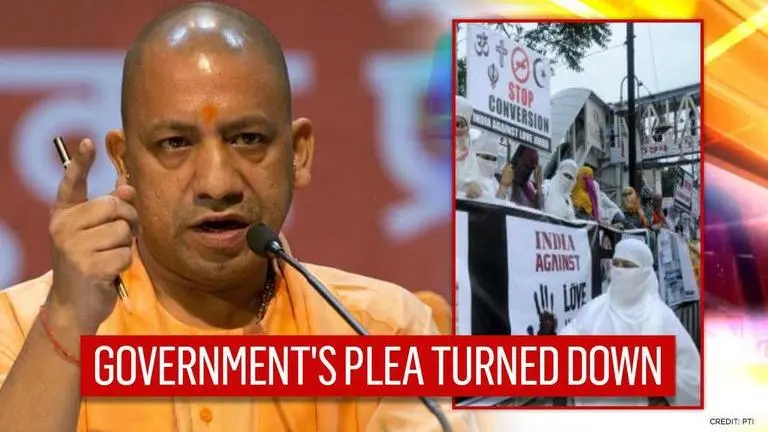Updated 25 January 2021 at 17:08 IST
SC refuses to entertain UP govt's plea seeking transfer of anti-Love Jihad ordinance pleas
The Supreme Court refused to entertain the Uttar Pradesh government's application pertaining to the pleas in Allahabad HC against the anti-Love Jihad ordinance.
- India News
- 3 min read

In a big development on Monday, the Supreme Court refused to entertain the Uttar Pradesh government's application pertaining to the pleas in the Allahabad HC against the anti-Love Jihad ordinance. The Yogi Adityanath-led government had filed an application under Article 139A seeking the transfer of these pending petitions in the HC to the apex court. When cases involving the same or substantially the same questions of law are pending before the SC and one or more HCs, the apex court has the power to withdraw the cases pending before the HC and dispose of them itself.
However, an SC bench headed by CJI SA Bobde ruled out the need to interfere when the Allahabad HC is going to decide the cases. Maintaining that High Courts are constitutional courts, the CJI lamented that some people are making light of HCs these days. While the UP government's counsel argued for avoiding a multiplicity of proceedings before the HC and the SC, the bench stated that it could not stop the Allahabad High Court from delivering its verdict on the pleas challenging the constitutional validity of the Uttar Pradesh Prohibition of Unlawful Conversion of Religion Ordinance, 2020.
SC refuses to transfer to itself petitions filed in Allahabad HC challenging new law of UP regulating religious conversions for interfaith marriages
— Press Trust of India (@PTI_News) January 25, 2021
UP's thrust against 'Love Jihad'
Under the aforesaid UP ordinance, an individual who forcefully marries a girl for the sheer purpose of converting her religion can face a punishment of up to 10 years in jail. Such a marriage will be declared null and void. Besides this, mass conversions shall be punishable with a jail term of 3-10 years and a fine of Rs.50,000 on the organizations conducting it. If someone wants to convert to another religion, he/she has to submit an application to the District Magistrate two months in advance.
Advertisement
In its counter affidavit before the Allahabad HC, the UP government submitted that the Constitution abhors forceful conversion particularly in the matter of religion. It said that the ordinance was passed in "public interest" as there is a fear psychosis in the society at large. Among many examples of what constitutes a forceful conversion cited in the counter affidavit, one of them was a Hindu woman's conversion to Islam after marriage with a Muslim man.
According to the State government, such conversion is done out of compulsion as Muslim personal law treats such inter-religious marriage as invalid. To buttress its point, it claimed that the Hindu woman will be deprived of inheritance unless she gives up her faith and accepts Islam. Challenging the maintainability of these pleas, it argued that the HC cannot test the constitutionality of legislation in PILs.
Advertisement
Published By : Akhil Oka
Published On: 25 January 2021 at 17:08 IST
